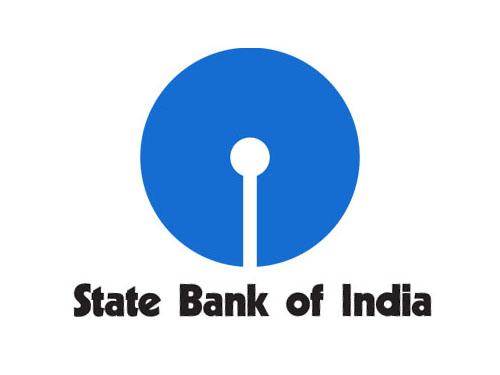CRACK IBPS PO : New Pattern Sentence Rearrangement Day 84
Dear Banking Aspirant ,
There have been recent changes in the Sentence Rearrangement in the English Section. Even in this year SBI PO mains examination 2017, the sentence rearrangement has changed and in that pattern, the first and the last sentence would be fixed and aspirants have to find all the other sentences in the given jumbled passage.
Even though this section is limited to little changes, who knows there can be changes even in this section in the forthcoming exams. We have to be updated for all the challenges which are yet to come in the forthcoming exams.These paragraphs are taken from the recent editorials from leading Dailies and Journals and this ranges from easy to moderate to difficult. So crack these questions to excel in the exams.
Directions(1-5): Rearrange the given sentences to form a meaningfully coherent passage and answer the following Questions. In this the First Sentence and the last sentence are fixed ( I.e A and G is fixed. You have to rearrange the other sentences to form a meaningful passage).
(A) Aung San Suu Kyi has broken her silence on the Rohingya crisis in Myanmar, saying she does not “fear international scrutiny” and the government was still assessing allegations of atrocities.
(B) “I’m aware of the fact that the world’s attention is focused on the situation in Rakhine state. As a responsible member of the community of nations Myanmar does not fear international scrutiny,” she said.
(C) Amnesty International said Aung San Suu Kyi’s speech showed that the leader and her government were “burying their heads in the sand over the horrors unfolding in Rakhine state”.
(D) We too are concerned. We want to find out what the real problems are. There have been allegations and counter-allegations. We have to listen to all of them. We have to make sure those allegations are based on solid evidence before we take action, she said in the capital, Naypyidaw.
(E) In her first public address since a bloody army crackdown on the Rohingya Muslim minority that has been branded “ethnic cleansing” by the United Nations, the Nobel laureate stressed the short time her government had been in power.
(F) Aung San Suu Kyi claimed the majority of Rohingya villages had not been affected by violence. She refrained from criticising the military – which has been accused of arson and indiscriminate killing – but said it had been instructed to exercise restraint and avoid “collateral damage”.
(G) Until now, Aung San Suu Kyi has not spoken publicly about the crisis since fresh violence broke out on 25 August, although in a phone call to the Turkish president she said “terrorists” were behind an “iceberg of misinformation” about the situation.
1) Which of the following should be the FIRST sentence?
(a) B
(b) C
(c) D
(d) E
(e) F
2) Which of the following should be the SECOND sentence?
(a) B
(b) C
(c) D
(d) E
(e) F
3) Which of the following should be the THIRD sentence?
(a) B
(b) C
(c) D
(d) E
(e) F
4) Which of the following should be the Fourth sentence?
(a) B
(b) C
(c) D
(d) E
(e) F
5) Which of the following should be the FIFTH sentence?
(a) B
(b) C
(c) D
(d) E
(e) F
Directions(6-10): Rearrange the given sentences to form a meaningfully coherent passage and answer the following Questions. In this the First Sentence and the last sentence are fixed ( I.e A and G is fixed. You have to rearrange the other sentences to form a meaningful passage).
(A) From the way Chinese President Xi Jinping welcomed Indian Prime Minister Narendra Modi to the ninth BRICS summit this month, with a wide smile and a warm handshake, it seemed all was well between the world’s two most populous nations.
(B) But the truce that India and China have called may be an uneasy one at best.
(C) The disengagement had, in fact, paved the way for Modi’s attendance at the 3-5 September summit of the leaders of Brazil, Russia, India, China and South Africa—the world’s biggest emerging economies.
(D) As a key driver of BRICS, its most influential member and the host of the summit, China wouldn’t have wanted the event to be marred by the absence of its biggest neighbour. Everything at the summit was carefully choreographed, from the welcome accorded to the delegates to the group photograph.
(E) From the body language of the two leaders, it would have been hard to tell that their countries had less than a week ago ended a tense military standoff that lasted 73 days—their most serious confrontation in decades.
(F) India and China have an unsettled border with most of the almost 4,000km in question undemarcated. It is a legacy of their brief but bitter 1962 war—which ended badly for India.
(G) China, on its part, said the plateau is part of its territory, known as Donglang. Doklam is located at the tri-junction of India, China and Bhutan, and is close to the Nathu La pass in the state of Sikkim.
6) Which of the following should be the FIRST sentence?
(a) B
(b) C
(c) D
(d) E
(e) F
7) Which of the following should be the SECOND sentence?
(a) B
(b) C
(c) D
(d) E
(e) F
8) Which of the following should be the THIRD sentence?
(a) B
(b) C
(c) D
(d) E
(e) F
9) Which of the following should be the Fourth sentence?
(a) B
(b) C
(c) D
(d) E
(e) F
10) Which of the following should be the FIFTH sentence?
(a) B
(b) C
(c) D
(d) E
(e) F





